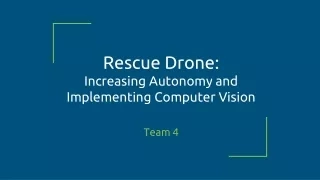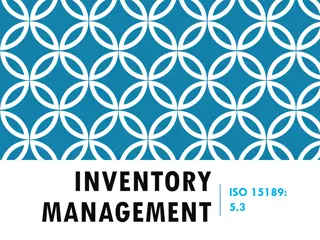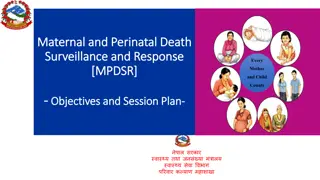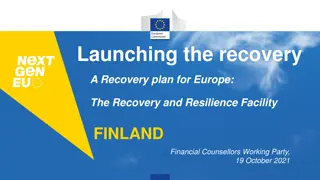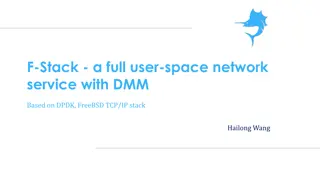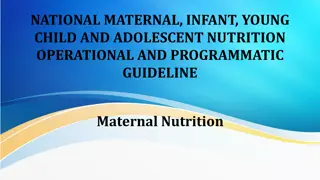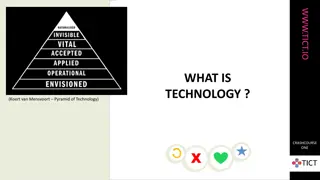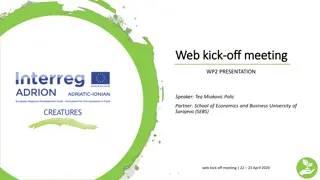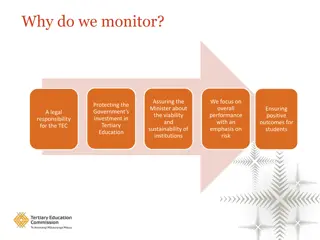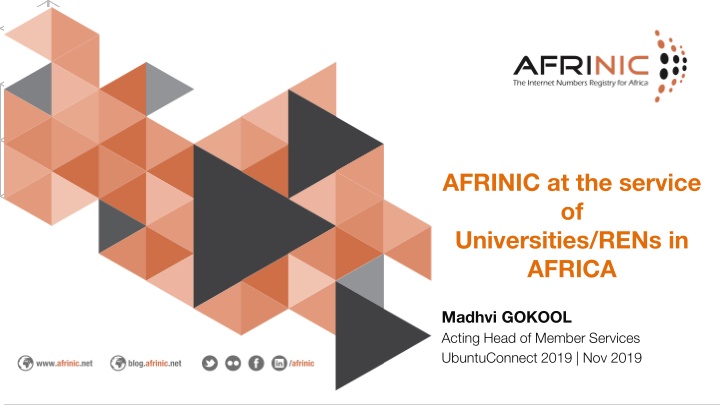
Boosting Internet Growth: AFRINIC's Support for Universities in Africa
AFRINIC, the Regional Internet Registry for the African continent & Indian Ocean Islands, plays a vital role in managing IP number resources essential for Internet growth. Through partnerships with universities and Research and Education Networks (RENs), AFRINIC provides resources, services, and benefits to facilitate digital collaboration and expansion. Learn about the impact of National RENs, the future of IP resources, and the changing landscape of AFRINIC's resource management. Stay informed on the connectivity advancements shaping the digital landscape in Africa.
Download Presentation

Please find below an Image/Link to download the presentation.
The content on the website is provided AS IS for your information and personal use only. It may not be sold, licensed, or shared on other websites without obtaining consent from the author. If you encounter any issues during the download, it is possible that the publisher has removed the file from their server.
You are allowed to download the files provided on this website for personal or commercial use, subject to the condition that they are used lawfully. All files are the property of their respective owners.
The content on the website is provided AS IS for your information and personal use only. It may not be sold, licensed, or shared on other websites without obtaining consent from the author.
E N D
Presentation Transcript
AFRINIC at the service of Universities/RENs in AFRICA Madhvi GOKOOL Acting Head of Member Services UbuntuConnect 2019 | Nov 2019
AFRINIC Regional Internet Registry Service region - AFRICAN continent & Indian Ocean Islands Manage IP Number Resources(INRs) that are critical to the growth of the Internet
Education - Membership Statistics RESOURCE MEMBERS 100+ Members holding INRs Some economies do not have a National REN (NREN) Capacity for growth with the growing tide of research institutions breaking down barriers to step in and collaborate in digital space
Additional Benefits to RENs 50% discount on allocation/assignment/annual membership fees Access to myafrinic Member Portal Use of AFRINIC Routing Registry Routing Security - RPKI
National Research and Education Networks Role of NRENs Interconnect University Networks Act as ISPs Provide IP resources to universities Negotiate Bandwidth agreements/Bulk purchase
National Research and Education Networks New NREN formation Growth of existing NRENs will require IP Number Resources (it s all about interconnection and service provision )
Changes within AFRINICs Resource Management landsacpe Phase 1 of IPv4 exhaustion 1,849,600 /32s IPv4 left until Phase 2 Prefix size that can be issued /24 to /13
Changes within AFRINICs Resource Management landscape Phase 2 of IPv4 exhaustion Available IPv4 Pool is /11 Prefix size that can be issued /24 to /22 Needs 8 months Eligibility for Additional resources 90 % usage of all resources held AFRINIC is preparing to step in Phase 2 imminently
Can NRENs still grow? NRENs that provide interconnection only to their members? IPv4 - YES IPv6 - YES NRENs that provide IP Resources to their members? IPv4 - Possibly by getting /22s of IPv4 from AFRINIC in Phase 2 any number of times or - Buying IPv4 space($$) from the IPv4 market IPv6 - YES
What should NRENs do? 1. Evaluate if they require(future 8 months growth) and are eligible for additional IPv4(90% usage of current allocations/assignments 2. Request for additional space (via myafrinic portal (https://my.afrinic.net) 3. Request for and deploy IPv6 4. Work with their member institutions to encourage them to get their own public IP Resources from AFRINIC (https://apps.afrinic.net/nmrp/)
Internet Number Resource Management Easy Steps for New Membership: Send your request at https://nmrp.afrinic.net Provide: Organisation and points of contact details Certificate of incorporation (incorporation within AFRINIC service region) Detailed IP addressing plan Service regulators license(where applicable) Contract with upstream ISP Sign RSA Other available documentation justifying your IP needs May be required to provide evidence of infrastructure in the region
Internet Number Resource Management Requirements for Additional IPv4 space: Must be compliant with the contractual obligations. - Must be in good financial standing (All pending fees are paid) - Registration Service Agreement on file - Updated contact details Must have used at least 90% of current IPv4 allocation/assignment Provide Details on how the current IPs allocation/assignment are being used Provide a detailed IP addressing plan showing the needs for next 8 months May require a remote session to validate the usage of current resources
AFRINIC Internet Routing Registry(IRR) Database of Internet route objects used for determining and sharing route information Network operators publish their routing policies and routing announcements in the IRR Linked with AFRINIC whois database
AFRINIC Internet Routing Registry(IRR) BENEFITS Restricted to AFRINIC members Less chance of Resource hijacking Members can autonomously maintain their routing policies and routing registry objects Free to Resource Holders in AFRINIC service region AFRINIC routing registry is mirrored by other routing registries: RIPE, NTTCOM, APNIC, RADB etc
Internet Routing Registry(IRR) 1. Locate the IRR you are currently using http://irrexplorer.nlnog.net/ 2. If Present in RIPE_NONAUTH only? AFRINIC strongly recommends that you migrate your route object. AFRINIC provides tools and assistance to migrate the existing route objects safely on the AFRINIC Routing registry. Use whois web-update portal http://whois.afrinic.net Note: You will need your organisation's maintainer password! Contact us at irr@afrinic.net for assistance
Resource Public Key Infrastructure(RPKI) Public key infrastructure framework designed to secure the Internet's routing infrastructure, specifically BGP Cryptographically certifies network resources AS Numbers IP Addresses Also certifies route announcements Route Origin Authorizations (ROAs) allow you to authorize the IP block to be routed Provides stronger validation than existing technologies such as: Internet Routing Registries Letters of Authority
Resource Public Key Infrastructure(RPKI) Available to AFRINIC Resource Members (https://my.afrinic.net/resources/rpki/) Institutions that hold legacy IPv4 only must become members by getting IP Resources(ASN, IPv4 or IPv6) before they can implement RPKI Legacy resources can be consolidated under the Resource Members Account and RPKI adopted
RIPE Atlas Probes RIPE Atlas is a global network of probes that actively measure Internet connectivity and reachability, providing an unprecedented understanding of the state of the Internet in real time. You can generally see which destinations you can reach from your network and via which paths. But with the help of RIPE Atlas, you can also do the reverse and check the reachability of your network from a distributed network of vantage points around the world. https://www.afrinic.net/research/faq-support
How to host an Atlas Probes Probes could also be obtained from AFRINIC and other RIPE ambassadors during the different Internet-related forums in the African region OR directly from RIPE Atlas by filling this form https://atlas.ripe.net/apply/?source=ec541a36-caaf-475e- 9f81-ab18ef793acd.
Policy Development Process The set of steps by which the Internet community, proposes, deliberates and adopts the policies that guide the use of number resources in the AFRINIC service region. This audience is part of AFRINIC Internet community Minimal engagement in policy discussion so far It is important to get engaged in the policy development process The policies affect all network operators Very important to read and understand the policies before requesting IP resources and related services Subscribe to the resource policy discussion mailing list (rpd@afrinic.net)
Capacity Building - IPv6 IPv6 Deployathons The IPv6 deployathon is fully focused on the implementation of IPv6 networks through prototyping, building and validation. At the end of the session, through expert guidance, participants will have moved their networks one clearly measurable step forward towards IPv6 deployment. E-learning IPv6 focussed on-line courses https://learn.afrinic.net
Recommendations Participate in the AFRINIC Policy Development Process & Contribute to the resource policy discussions Maintain accurate records for your organisation and IP Resources in the AFRINIC databases Visit the FAQ/member support documentation pages on our website Contribute your ideas on the database working group(dbwg@afrinic.net) Contact: hostmaster@afrinic.net / irr@afrinic.net / service- support@afrinic.net

